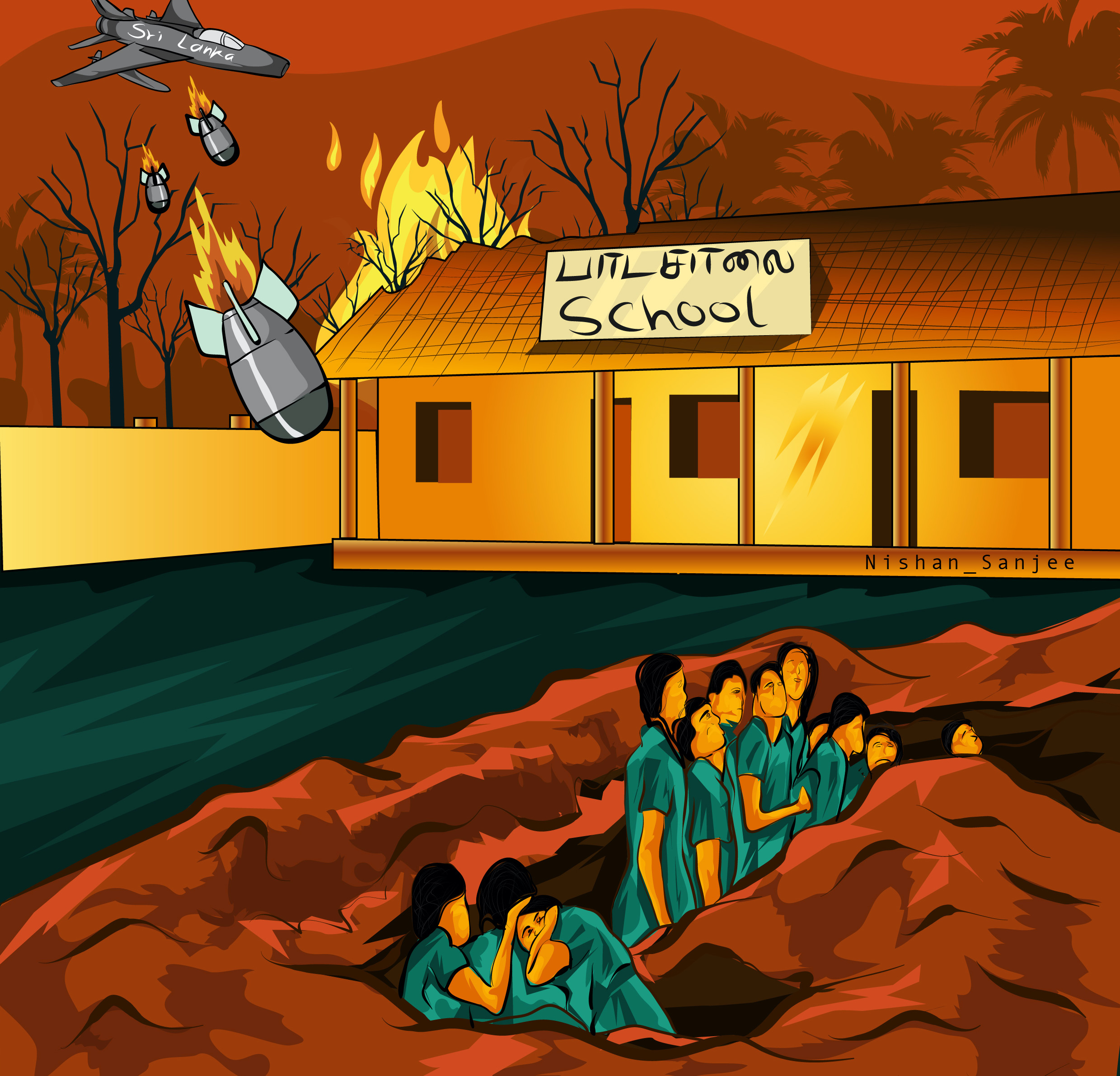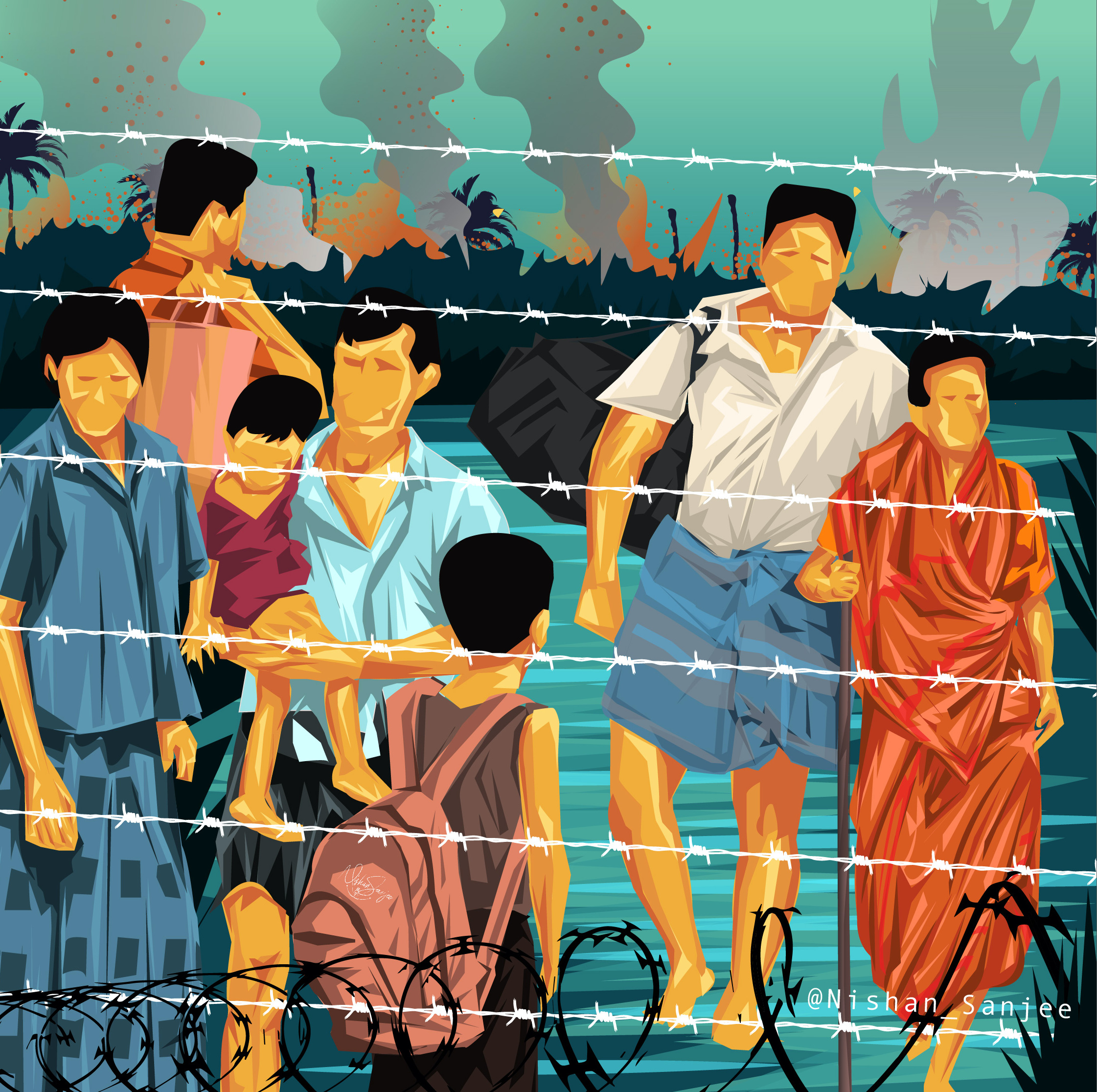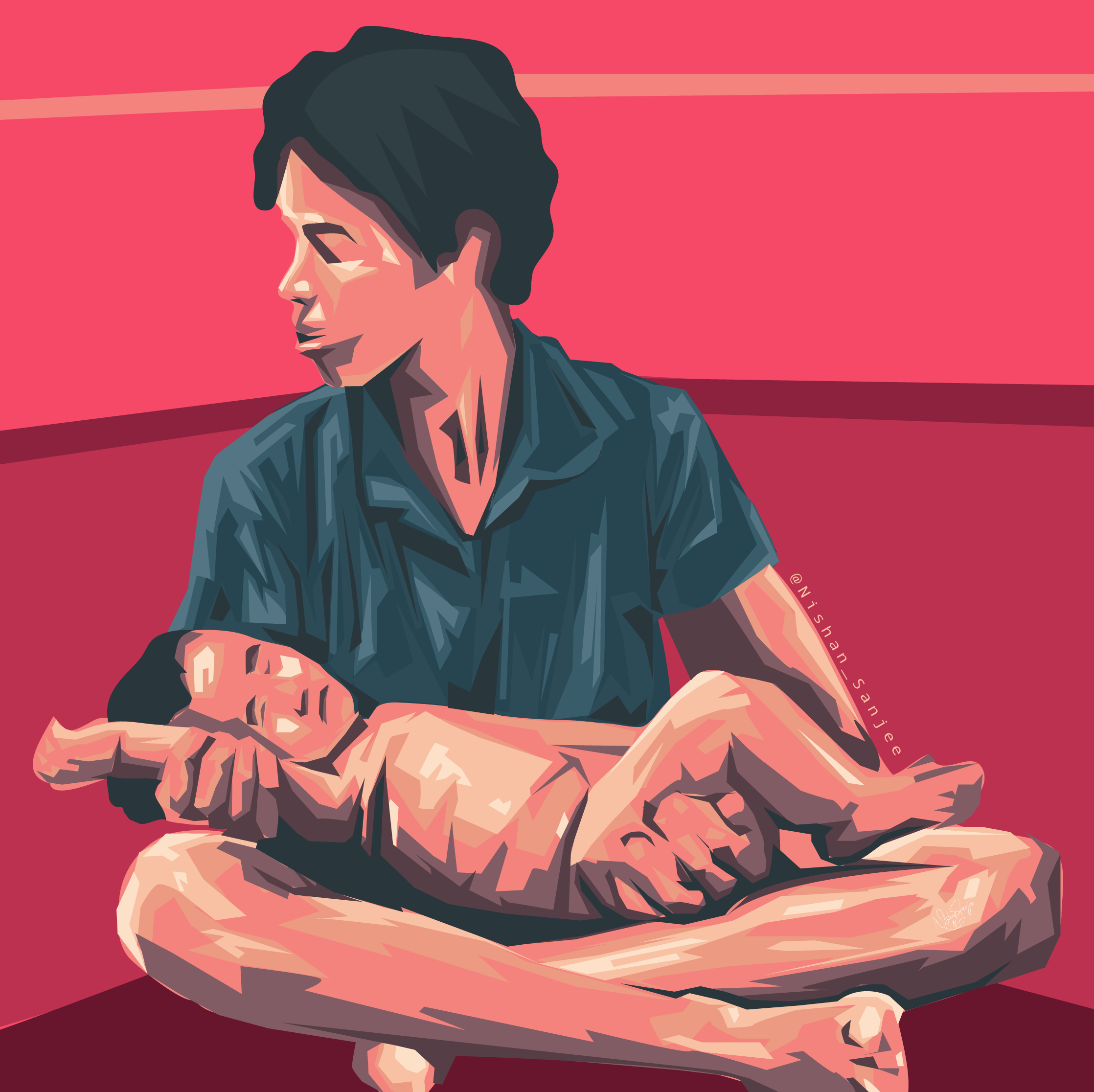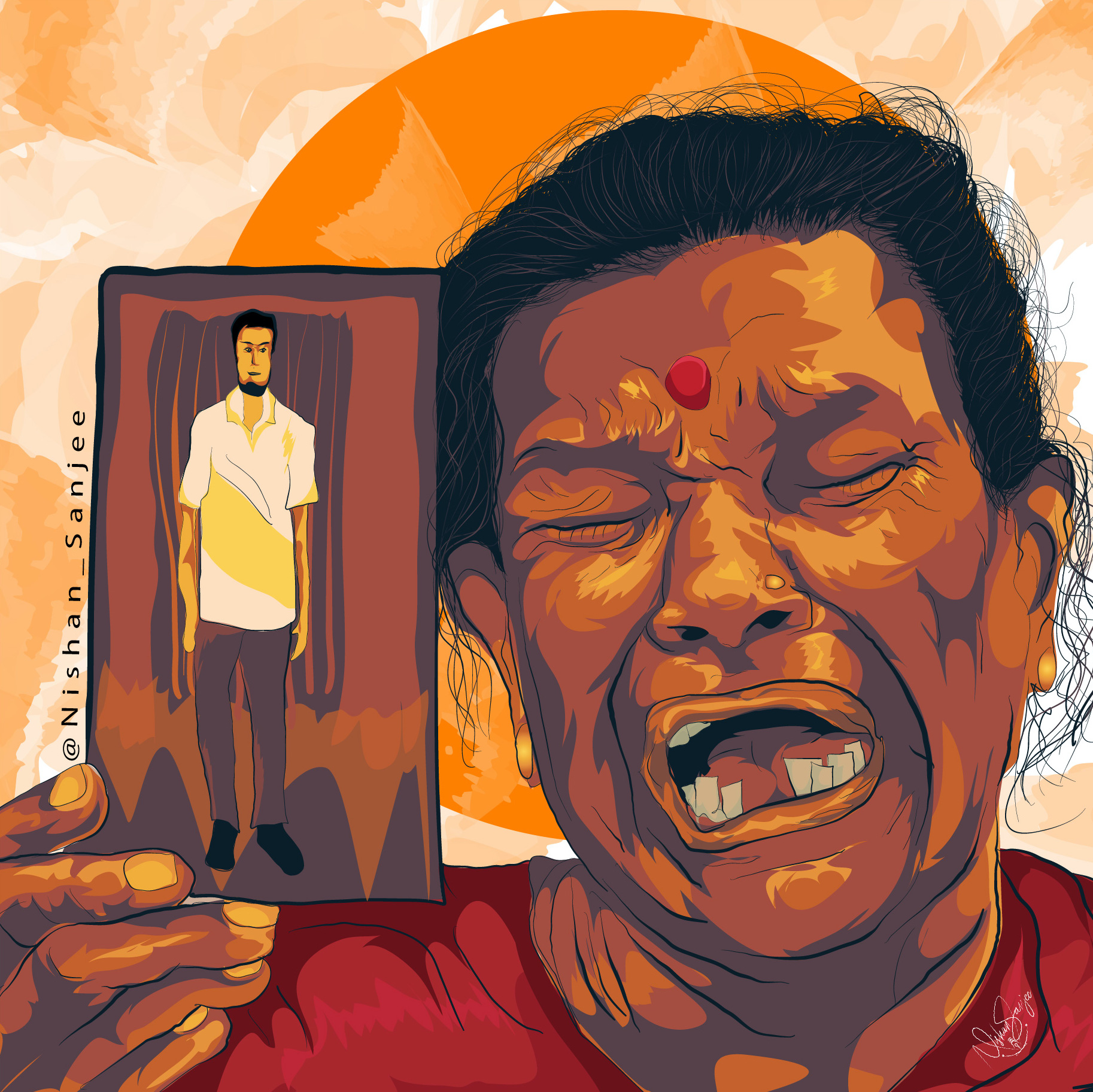Thampi (little brother), our dog Singaa, my 30 pet doves and myself in Eelam at the end of 2008 moving from Vaddakkachchi to Visuvamadu.
I was 15 years old at that time and thought it’d only be two or three weeks then we’ll be back to our place and continue with our normal lives. But I was wrong.
Who would have thought we had to keep moving to four other places? Every time we moved we had to leave some of our stuff behind. We were camping, living on the beachside, eating rice and lentils without any flavour for months (but some people didn't have that privilege).
No hope and constantly fearing the worst.

We were bombed almost every single day.
Didn’t matter if it was a school, hospital, or a civilian area. I remember vividly, we would be in the middle of class and when we heard the sound of jets we had to go into the bunker and hide. Then we would go back and continue with our study. Sometimes the jet flew over areas and bombed us two or three times a day.
(Art depicts bombing of Sencholai by Sri Lankan Air Force)

Going into Sri Lankan army territory.
We would go with the Tigers if we could, but unfortunately, we were at the end. It was either going into the sea or the Sri Lankan army territory. My family decided to enter the Sri Lankan army territory with the other families. We had to sneak through the fire zone (I honestly thought we wouldn’t make it).
The no-mans-land was a little lake/lagoon, one side were the Sri Lankan soldiers and the other was for the Tigers. When we entering the no-mans-land I saw a female Tiger firing a heavy machine gun. She saw us enter and stopped firing but the Sri Lanka Army kept going.
This is why our people loved the Tigers. I never saw them harm a civilian. I know they always looked out for our people.
I saw people getting shot, family members crying over their loved one’s body. It was hell.

Eventually, the soldiers stopped firing because there were too many of us to kill. They waved us to enter and walk across no-mans-land.
The water was up to my neck in some of the spots. We couldn’t see what we were stepping on and I’m sure we walked on at least one dead body.
Everyone was soaking wet, waiting at the wire fence to enter. They allowed us one by one to do a body check-up. Most of the people had just a backpack and some of them didn’t have anything.
After the check-up process they made us sit in an empty land with no food and no water. There was nothing to do but to mourn over the people left behind. It was the worst feeling when we had no idea what was going to happen next, if they were going to execute us or take our family members because of suspicions.

The next day they made us walk in a single line for a few miles. The Sri Lankan soldiers showed no mercy, they were smiling and messing with women. We walked a few more miles and finally there was food, though just chickpeas. We were waiting for one more check-up. This time we were completely stripped naked as we walked through checkpoints.
I could tell people were way more scared than before. They were taking young adult men and women from their families for questioning. Most of them didn’t return.
The next day, they boarded us on buses to send us to a camp in Vavuniya. There was another check point before boarding. This time they were asking detailed questions about every single one in the family. There were some people who had turned and worked with the military, covering their faces and started pointing their fingers. When they pointed their finger at people, didn’t matter how old or what gender, the Sri Lankan soldier came and took that person away. The families were helpless, couldn’t do shit. They just cried some more.
The women tried to cover their bodies and faces ever since they entered the army territory because of the savage lions around them, the Sri Lankan soldiers notorious for rape.

It’s been 11 years since the genocide at Mullivaikkal...
but for many families the long struggle will never be over. More than twenty thousand Tamils are missing, many were teenagers or young adults. These mothers and loved ones have been seeking justice by protesting.
Nishan Sanjee is a 26-year-old graphic designer and illustrator. Born and raised in Vanni, Tamil Eelam, he has lived in Canada since the end of 2009.
